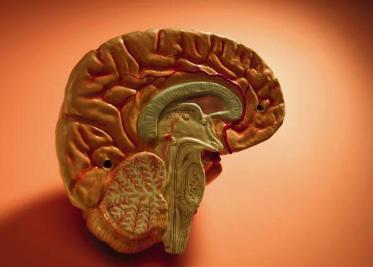Improve Memory and Aging
for Your Parents with Better
Brain Foods
Memory and aging are more under our control than we realize. Eating the right brain foods impacts our overall brain fitness. You can learn to help your aging parents slow their brain aging process.
This insightful article by Dr. Shiroko Sokitch helps us understand our choices and actions and the impact on memory and aging. If we can help our parents choose better foods and manage their brain fitness for a longer, happier and healthier life.

Memory and Nutrition
Have you walked into a room clear that you had a purpose and then suddenly can’t remember why?
Did you put that ring down somewhere and can’t find it now?
Are you worried that you’re not going to remember your name next week?
Not all memory issues mean that you’re heading down the road to dementia. Some things that look like severe memory loss can be treated with simple solutions. Your brain is capable of making new cells at any age.
Everyone has a little bit of forgetfulness that is considered normal. Forgetting where you left things, forgetting the name of someone you don’t know well, forgetting the details of a book or movie you just saw, or getting easily distracted are all normal.
If you begin to forget your son’s name, or miss your weekly card game, your memory loss is more significant and may indicate a condition called “mild cognitive impairment” or MCI. The hallmarks of MCI are having trouble remembering something you just did or pulling up information you’ve known for a long time. Some people who develop MCI go on to have Alzheimers but it isn’t necessarily a precursor to it.
Memory and Aging Fears
When memory loss becomes so severe that it interrupts your work, hobbies, social activities, and family relationships, you may be experiencing the early signs of Alzheimer’s disease or dementia. But you may also have a physiologic imbalance that is causing your symptoms.
Environmental toxins, heavy metals, medications, alcohol and drug abuse, depression, vitamin deficiencies, and hormone problems can all contribute to severe memory loss.
The list of medications that affect memory includes, pain killers, anti-anxiety medications, antidepressants, seizure medications, and even some antibiotics like Cipro, Flagyl, and Keflex. Thyroid hormone, acid blockers, antipsychotics, and allergy medications also affect memory. With this long list of things that can have an affect on your memory, you can see that retaining your memory is a delicate process. As we age, we have less leeway with everything. We have less reserves of energy, and less room to muddle with our physiology.
Memory and Aging Helps
In light of that, everything we do can affect our ability to remember in both positive and negative ways. If you only eat once a day and you have only highly processed foods, it will cause you to forget everything. But if you eat a healthy balanced diet with protein at each meal and keep your blood sugar balanced throughout the day, your brain will be happy to help you find the name of your neighbor. Remember that the brain is fueled by glucose – sugar. That means it needs a steady supply all day to keep it functioning well. It does not mean that you should eat candy bars all day however.
American diets are deficient in Vitamin D and omega fatty acids, both of which are key elements to help our brains function at their best. You can have your vitamin D levels checked at your doctors office. Omega fatty acids are available in capsules in the form of fish oil, flax oil or combinations. You can also get them in your diet by eating enough of high quality oils such as olive oil, other nut oils, nuts. Walnuts are especially good for your brain….they are shaped like it after all.
We have ways of measuring hormones and brain chemicals, which can help us understand what is the cause of a particular memory problem. Maximizing your hormones and brain chemistry will definitely help support your brain function. There are also several interesting supplements to help with memory loss. Low dose lithium has been shown to help support memory and brain function in people who take it.
And lastly, if you exercise your brain it’s just like exercising your body, it tends to work better when you do. Puzzles and games like scrabble, crosswords, sudoko, and reading books that aren’t too easy to understand keeps your mind active and engaged. Gary who developed Alzheimers at a fairly young age, would always do better when he traveled to new places, it stimulated his brain.
Author's Bio
Shiroko Sokitch graduated from University of Washington School of Medicine in 1984 and the Northwest Institute of Acupuncture and Oriental Medicine in Seattle, WA in 1990. She did two years of a general surgery residency at Swedish Hospital in Seattle before deciding that the surgeon's way of life was not for her. While attending acupuncture school and starting her alternative medical career, she practiced as an emergency medical physician for ten years. Since 1993, she has owned and operated Heart to Heart to Heart Medical Center, a complementary medical center in Santa Rosa, CA. In 2009 she opened a new office in Novato, and is quite excited to be the only doctor of her type in the area. Since January of 2000, she has also written an alternative medical advice column in the Healdsburg, Windsor, and Sebastopol newspapers.
Reprinted with Permission of the Author
Here are suggestions of what you should eat for the best
Brain Foods
From Memory and Aging to
Brain Fitness
From Memory and Aging to
Brain Plasticity
From Memory and Aging to Aging Parents Home Page